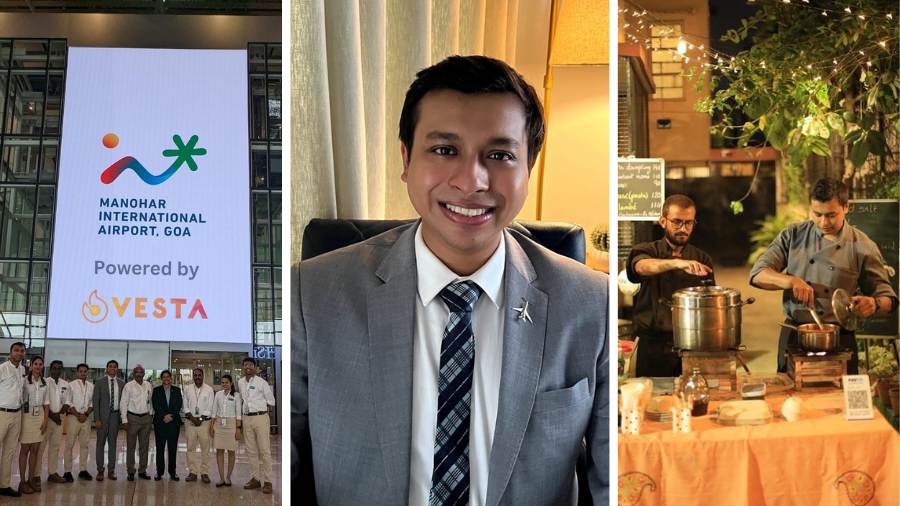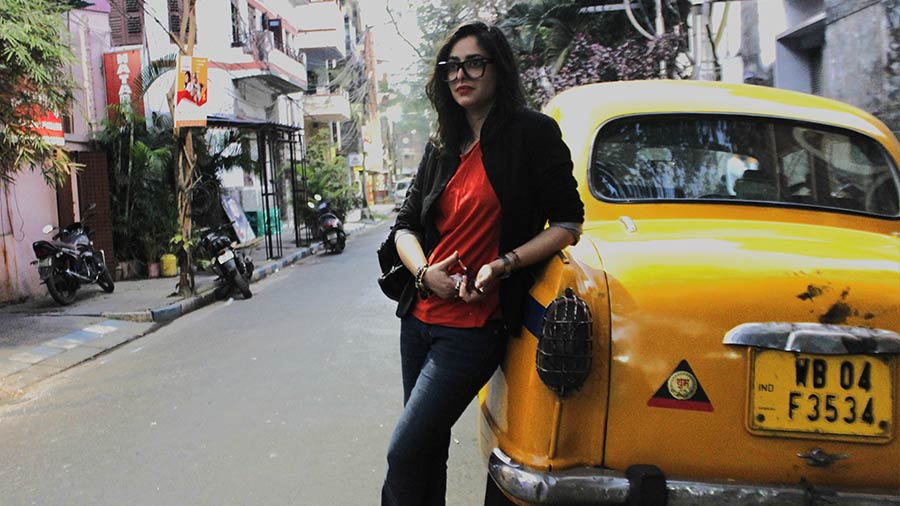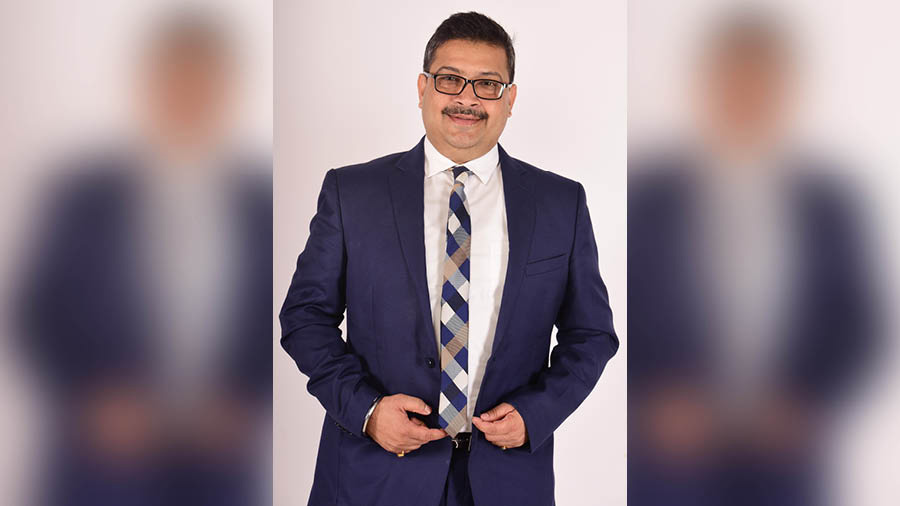Sharang Majumdar’s life is a series of happy accidents. Starting from hospitality, he carved a career in software as the CEO of Vesta & Atom Technologies, and has spearheaded the digital terminal operations modernisation for private airports in the country. Meanwhile, the 30-year-old also found his way back to hospitality on his own terms, pioneering one of Salt Lake’s most-loved cloud kitchens, Upland Salt. My Kolkata caught up with him to chat about the journey that led him to managing two successful businesses in completely different fields.
Change is the only constant
Adapting to challenges and culture shock has always been Majumdar’s strong suit from an early age. Born in Saudi Arabia, where his doctor parents worked for the health ministry, he was admitted to La Martiniere for Boys when the family moved to Kolkata. It was a massive culture shock for the 10-year-old Sharang, who could only speak English at the time and was younger than others in his class. “I remember people would say ‘van aschhe’ and I’d imagine a motor vehicle, but it was the ‘van’ rickshaw with a compartment for kids.”
Always one for taking a different path, this entrepreneur explored different fields before landing on hotel management. When the desire to join the National Defence Academy didn’t work out due to academic pressure, he set his sights on law, while his parents applied for hotel management on his behalf. Majumdar secured a place at Gujarat National Law University. Parallely, he also got through to the Institute of Hotel Management Catering Technology & Applied Nutrition (IHM) Mumbai, one of the country’s best, “I wanted to go to the best institute for whatever field I chose, so I opted for IHM Mumbai. My mantra was that even if I had to cut grass, I had to cut it well.”
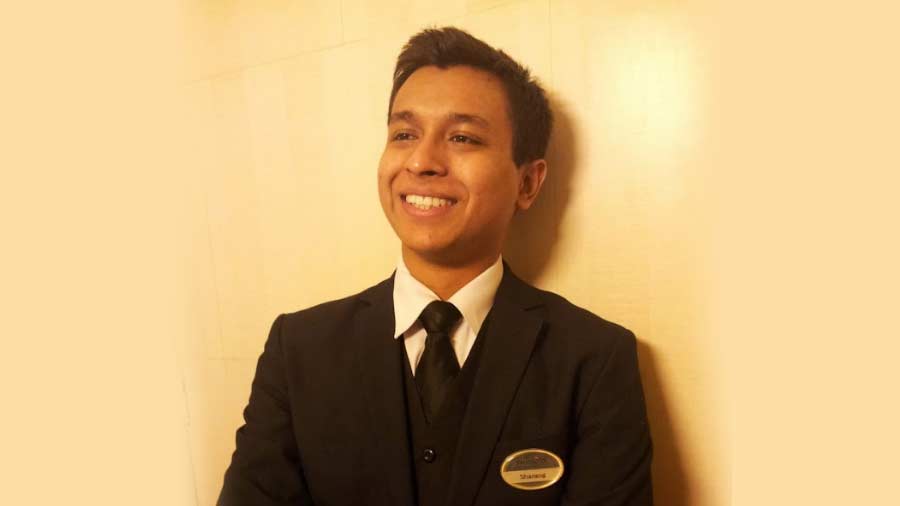
Majumdar’s hospitality career began at Swissotel Kolkata
IHM Mumbai brought another change and also brought cooking into his life, something he hadn’t truly explored before, and something he fell in love with. It was here that he met Nishant Chhajer, who has been his frequent collaborator (and occasional housemate), and who was pivotal in Majumdar’s decision to join Swissotel Kolkata as an intern in 2013 for a remuneration of Rs 750. He made it work with everything they threw at him — a noteworthy feat since internships are always a reality check in hospitality, where 25 per cent of the batch generally leaves after it. “I feel that once you work as a waiter, you learn how to deal with people of different cultures and backgrounds,” he added.
Majumdar had a clear agenda that kept him afloat: keep your head down and work. While waiting for an opportunity at Fairmont Dubai, he joined Swissotel Kolkata full-time. It was during this time, he gained in-depth knowledge about hospitality software that were operated by global chains, a skillset sought after by several Indian chains, and one that got him jobs at Taj Santacruz and The St. Regis in Mumbai. While it catapulted him to hosting the who’s who of the country, the industry’s unhealthy work culture prompted Majumdar to quit hospitality.
The entrepreneurial spirit
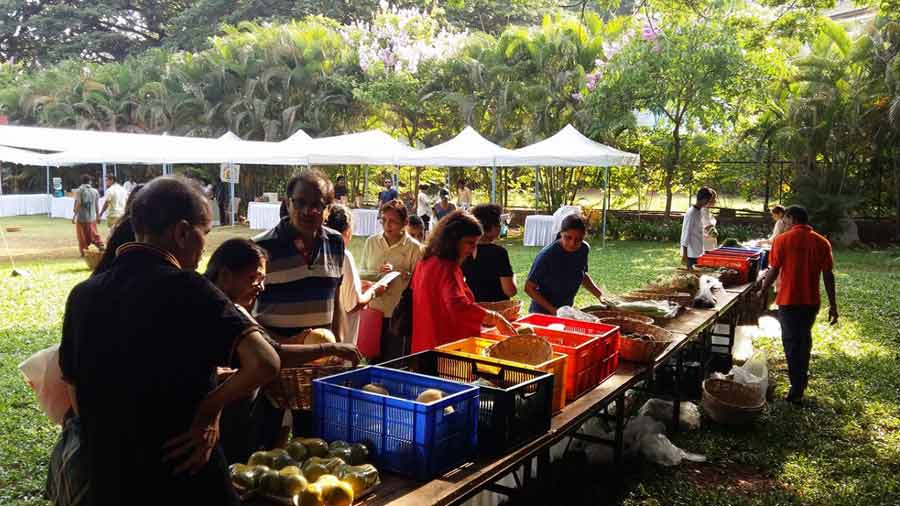
At the age of 22, Majumdar helped put together a farmer’s market at Mahalaxmi Race Course, which became a social hub for Mumbai’s elite
For his next stint, Majumdar joined hands with a college senior, and started a farmers’ market at Mahalaxmi Race Course “We realised that 30,000 square feet of land was lying unused between 6am-10am and convinced the authorities to rent it to us for just Rs 10,000.” A 22-year-old Majumdar went to Ratnagiri and Nashik, working with farming cooperatives to transport fresh produce to the race course every morning. He even received support from NABARD (National Bank for Agriculture and Rural Development), who gave their venture free trucks and fuel to transport the farmers and their goods.
“Three times a week, we would reach the venue at 4am and set up the market. It started off slow, but we soon got noticed, with people like Juhi Chawla and Jackie Shroff endorsing us. We even had 12 massive billboards put up in south Mumbai for free. The market was expanded into a hub for social interactions, with a pottery corner, yoga classes, and people selling their own homemade food. The idea was to create an ecosystem. We replicated this to three other places in Mumbai.”
The period was financially difficult for Majumdar and with a desire to innovate beckoning him again, he left the business a year later.
Innovations, technology and more
Drawing from his experiences in hospitality, Majumdar began to look at improving the software systems used in the sector. “The existing ones in the market were expensive and often unaffordable for most Indian chains. So, I started noting requirements from the user’s point of view. After joining with two more partners who had an existing software company, we pivoted to this new idea that would improve hotel staff productivity, and renamed the firm, Vesta & Atom Technologies.”
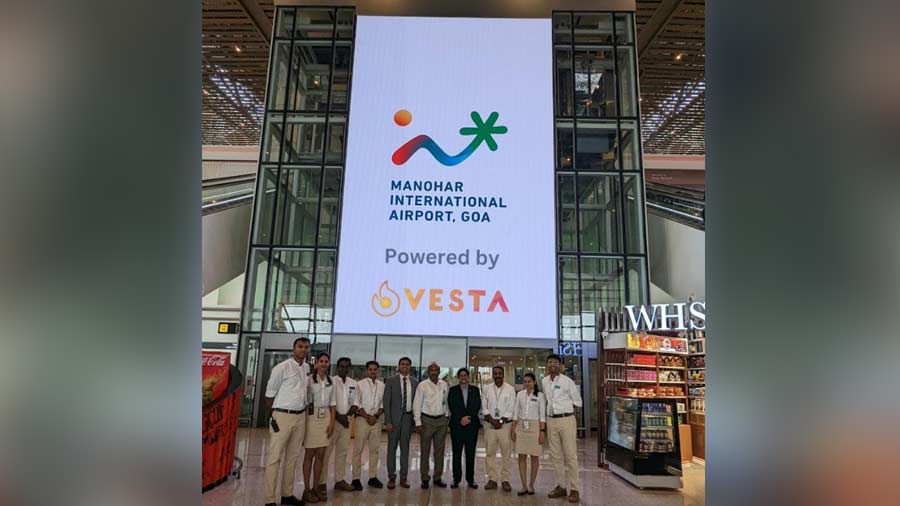
Barely a few months in, Majumdar helped Vesta secure a partnership contract with Goa’s Mopa Airport
Based in Pune, the company began with automating backend operations of hotels. Instead of most such apps which had to be downloaded by the customer, the new platform was for staff. When a guest made a request, it would be fed to the ecosystem, so that the staff could attend to it. If the task wasn’t completed in a set time, the query would be escalated. The driving factor was that it was a light software capable of hosting unlimited users and would help the staff, provide the management with data, and save both time and man hours.
“Since Kolkata is a price sensitive market and the most challenging one to survive in, we wanted to stress-test our software and accommodate the issues people would face here.” Within the first month, he got 18 meetings. However, the response was less than ideal, until finally they landed Kenilworth Hotel at Little Russell Street, and within a month, expanded the software to their 5-star property in Goa, and then to multiple hotels in Mumbai. This led to an interest from hotels in Maldives and Dubai, and Vesta secured the business of Dhigali Resort Maldives, one of the best resorts in the world. “In our first two years, we tied-up with 25 properties around the world.”
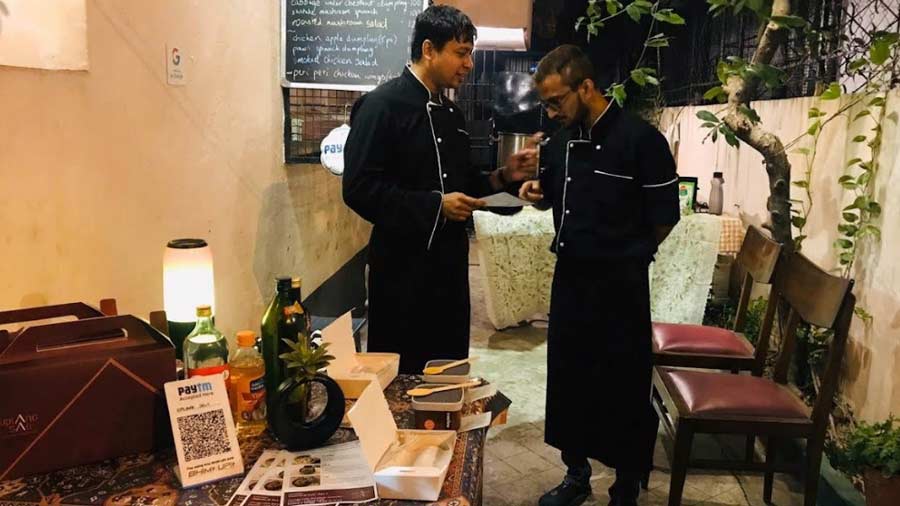
Majumdar and (right) Nishant Chajjer turned his driveaway into one of Salt Lake’s most happening cloud kitchens, Upland Salt
With the company growing in scale, he returned to Kolkata three years ago. “I moved into my grandmother’s old house. Nishant was also back in the city, and we both wanted to do something with food. So, I decided to break the savings I had in mutual funds to start a cloud kitchen!” This led to the creation of Upland Salt.
Upland Salt started just before the pandemic, with a long menu focusing on international soups and dimsums, with a box-meal concept that brought luxury to delivery. “We picked up really fast, and our customers would come all the way from Alipore. We had hour-long queues at times.”
The flight after the fall
The pandemic put a dent in both of Majumdar’s businesses, stalling plans of moving Upland Salt to a bigger space and leaving his hospitality-focussed software company in a bleak state.
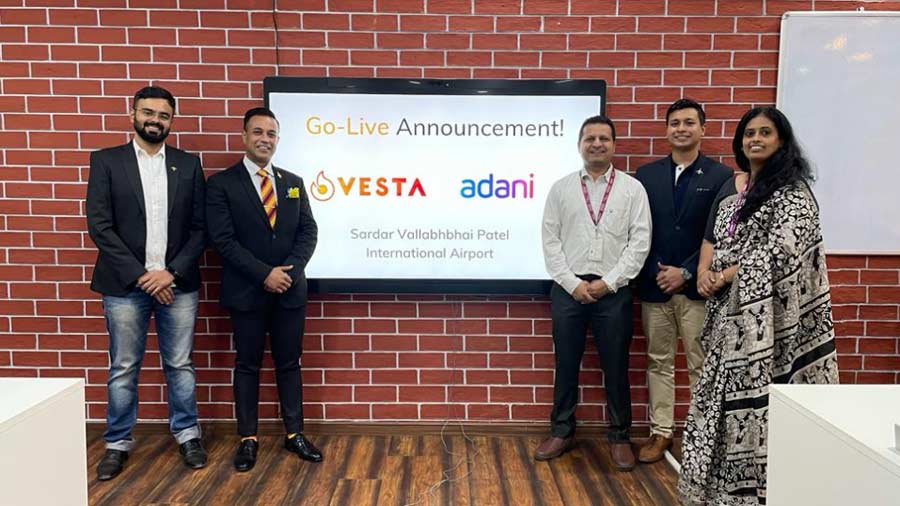
Amidst the fall, the idea to move from hospitality to airports took form. Majumdar started messaging people, this time through LinkedIn, with a goal to crack into the coveted Delhi Airport. Many pitches and meetings later, Vesta finally converted the airport after three months. “When we got Delhi, it changed everything. The Adani group took notice, because the Delhi Airport is a pillar for how things are done, and we gradually came on board for all seven airports run by them.”
Apart from Delhi, Majumdar’s company now handles Goa, Bengaluru, Jaipur, Thiruvananthapuram, Ahmedabad, Mangalore, Lucknow, Guwahati and Mumbai airports, and Hyderabad may be soon added to the list.
“More than 850 people use our software in Delhi every second. Cumulatively, we save over 1,22,000 man hours across our airports every year,” Majumdar said.
As for Upland, Majumdar set up a new kitchen, refurbished the menu, and even began hosting stand-up comedy events on weekends. “Nishant and I try to have an element of fun in everything we do, and our internal jokes are crucial to our working relationship. So the moment the idea to host comedy came up, we pounced on it!”
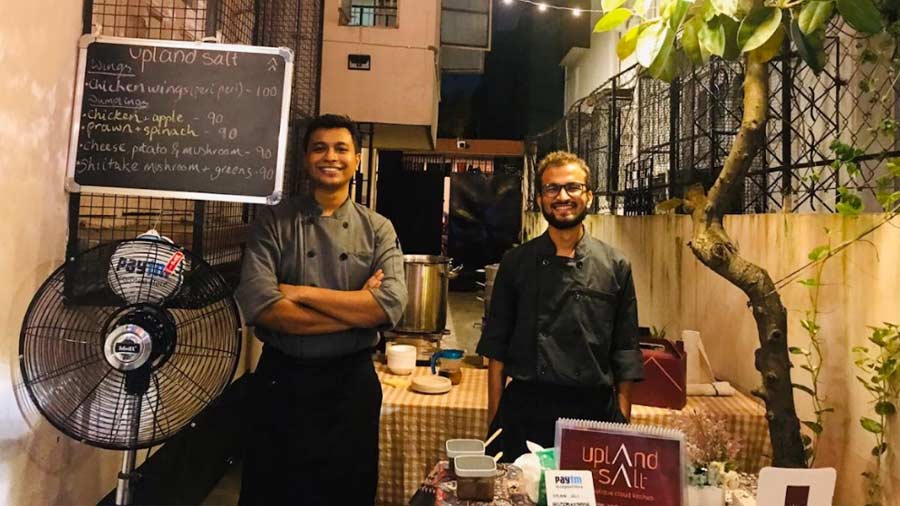
Upland Salt is run from Majumdar’s grandmother’s home in Salt Lake
With both the businesses thriving, Majumdar confesses that things have finally turned around, and a lot of it also has to do with acceptance. “When I initially moved back to Kolkata, I hated the work culture, but now I have begun easing into it, because it helps me live more rather than just work more. I get to spend more time with my family, and feel like I have truly achieved stability.”
